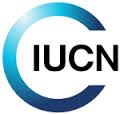Location
IUCN is a membership Union uniquely composed of both government and civil society organisations. It provides public, private and non-governmental organisations with the knowledge and tools that enable human progress, economic development and nature conservation to take place together.
Created in 1948, IUCN is now the world’s largest and most diverse environmental network, harnessing the knowledge, resources and reach of more than 1,300 Member organisations and some 16,000 experts. It is a leading provider of conservation data, assessments and analysis. Its broad membership enables IUCN to fill the role of incubator and trusted repository of best practices, tools and international standards.
IUCN provides a neutral space in which diverse stakeholders including governments, NGOs, scientists, businesses, local communities, indigenous peoples organisations and others can work together to forge and implement solutions to environmental challenges and achieve sustainable development.
Working with many partners and supporters, IUCN implements a large and diverse portfolio of conservation projects worldwide. Combining the latest science with the traditional knowledge of local communities, these projects work to reverse habitat loss, restore ecosystems and improve people’s well-being.
Resources
Displaying 131 - 135 of 142Conservation Action for Bicknells Thrush on Canadian breeding grounds III PP
General
Approximately 38 percent of the global population of Bicknells Thrush breeds in eastern Canada. This project will improve conservation for the Bicknells Thrush in Nova Scotia and New Brunswick by addressing habitat destruction, degradation and loss on the breeding grounds, focusing on industrial forest and other unprotected areas. The grantee will partner with timber companies and land management agencies to develop and implement Best Management Practices, and conduct targeted outreach in communities surrounding unprotected areas to secure long-term support for and protection of Bicknells Thrush.
Scaling-up Indigenous-led Forest and Orangutan Conservation in West Kalimantan, Indonesia
General
(1) Community-based forest patrol team engaged in site-based protection utilizing Spatial Monitoring and Report Tool (SMART) to measure and monitor activities in Gunung Naning Protected Forest; (2) Conservation Cooperatives kick-started to reduce inequalities and promote sustainable development in rural buffer zone communities; (3) Conservation Audit and Buy-back program provide incentives for villages honoring their conservation pledge; (4) Improved land management through organic farming intensification / training and agroforestry; and, (5)Reduced inequalities for women and youth through literacy program and health awareness programs.
Fair Finance Asia Phase 2
General
Fair Finance Asia (FFA) is a regional network of Asian CSOs committed to ensure that financial institutions' funding decisions respect the social and environmental well-being of local communities. It is managed by Oxfam Novib and based on the Fair Finance Guide International (FFGI) Methodology seeking to influence financial institutions to adhere to ESG (Environmental, Sustainability and Governance) criteria in their investments. The overarching goal is that banks operating at national and regional level contribute to positive outcomes for people in Asia through their financing and investments while reducing negative impacts on the climate, environment, human rights and gender equality. The first phase of the program, 2018 - 2022, included eight countries, Thailand, Indonesia, Philippines, India, Vietnam, Cambodia, Pakistan and Japan. The reason for including Japan is that many Japanese banks invest in countries in Asia. Based on the positive results from phase 1, as well as the fact that FFA is in line with the priorities of the new regional strategy 2022 - 2026, Sida has decided to support a second phase. It covers five years and includes expansion to five new countries (Malaysia, Bangladesh, Lao PDR, Singapore and South Korea) and the regional influencing will focus two main themes; Just Energy Transition and Gender Lens Financing. The program has four result areas; 1) Financial institutions (FI) operating across the region increasingly adopt or improve sustainable finance policies, practices, and public disclosure. 2) Regulators and governments increase independent monitoring of FI policy, practice and accountability and transparency, and improve the regulation of FIs, including through mandatory regulation. 3) Regional financial sector actors take increasing actions to require and enforce improved standards for FIs’ policies, practices, accountability and transparency. 4) Strong and resilient civil society across the region effectively influences the sustainable finance agenda across the region, integrating a gender lens and community voice. Other actors have increased awareness and take increased action to influence the sustainable finance agenda. More information is available on the website: www.fairfinanceasia.org.
Objectives
The expected impact of the intervention is that: Financial institutions operating across Asia increasingly accelerate positive outcomes for communities and the environment through their financing and investments, while reducing negative impacts on the climate, environment, human rights, inclusion, gender equality, food security, and land rights. The intervention has five result areas and the following objectives... 1) Financial institutions operating across the region increasingly adopt or improve sustainable finance policies, practices and public disclosure. 2) Regulators and governments increase independent monitoring of financial institution policy, practice, accountability and transparency, and improve the regulation of financial institutions, including through mandatory regulation. 3) Regional financial sector actors take increasing actions to require and enforce improved standards for FIs policies, practices, accountability and transparency. 4) Stronger and resilient civil society across the region effectively influences the sustainable finance agenda, integrating a gender lens and community voice. 5) Other stakeholders (intermediary stakeholders) have increased awareness and taken more action to influence the sustainable finance agenda.
Community-based sustainable management of Tanguar Hoar
General
Decentralized co-management system conserves ecosystem values and services and provides a basis for improving rural livelihoods
Responsive Forest Governance Initiative (RFGI)
General
The purpose of the RFGI is to have representative local forest governance and responsible natural resource management improved in at least 10 country-based landscapes in Africa, supported with handbooks for the design and improvement of accountable and responsive local forest-governance processes. The expected results from phase I are mainly new knowledge, a set of forest governance handbooks, and increased analytical capacity in forest (environmental) governance in the region





